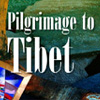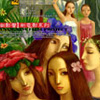Erhu-the sound of China
Updated: 2007-06-25 09:49
Erhu has widely been called "Chinese violin" because its tone similar to a Western violin. While the four-string violin is played horizontally, the two-string erhu is played vertically. The erhu range is up to four octaves in its most common tuning (it is sometimes tuned to play higher or lower octaves.
The techniques of erhu playing are complex and require great skills. The sound it produced is delicate, rich and expressive. It's a trend in recent years to play classic violin compositions with an erhu.
"The development of modern erhu has benefited from the techniques of violin playing but erhu is a more difficult to control than the violin," says Xing, who taught violin maestro Itzak Perlman to try to play the "Chinese violin" in 2002 at the Shanghai Conservatory of Music.
"Without a finger board (like the violin has), it is very easy to go off-pitch when playing a note on erhu. In fact pressing on the strings harder or softer will make the pitch go higher or lower respectively.
"But interestingly this 'disadvantage' actually gives the erhu a flexibility almost comparable to the human voice," says Xing, who has tried to imitate the singing of a Peking Opera actor with an erhu during a concert.
"People said my playing was so much like a man's singing. The famous composition 'Jiang He Shui' ('River Water') sounds like the wailing of a woman. Once I played 'Er Quan Ying Yue,' ('Moon Reflects over the Second Spring'), my neighbor, a boy, came over to ask, 'Who is crying around here'?" she says.
In addition, the instrument can also create special effects like birds chirping, dogs barking or a horse neighing. Now erhu is widely used as a solo instrument in the orchestra of Chinese instruments and also in numerous Chinese folk operas and ballad forms.
The most famous Chinese erhu performer in history was Hua Yanjun, a blind street artist who was known as Blind Ah Bing (1893-1950).
"His father, Hua Qinghe, was a maestro of erhu and pipa and head of a Taoist temple where Ah Bing grew up and learned to play the two instruments," says Xing.
"After his father died, Ah Bing inherited the temple but was poor at managing it. His dissolute lifestyle left him infected with a disease which caused him to go blind. Bankruptcy and disease forced him to perform on the streets to make a living and he created a rainbow of compositions to express the agony of his life.
"His music was so touching that he became more and more famous. A visiting team of Chinese musicologists recorded six pieces of his playing (three erhu and three pipa) in 1950 before he died a few months later," Xing says.
|
||
|
||
| Eating out:
Arriba arrives in the Wu
Bars&Cafes: Mare's milk a-go-go Weekend&Holiday: Ancient sites re-open after renovation Shopping: Jimmy Choo comes What's on: New shows on stage |
|
||
| Eating out:
Moroccan roll
Bars&Cafes: A boonna in training Weekend&Holiday: Pop power Shopping: LV boutique in E. China closed for disqualification What's on: Jazz-infused journey through Kunqu Opera |



